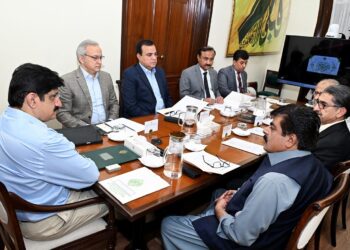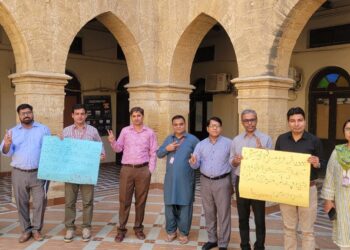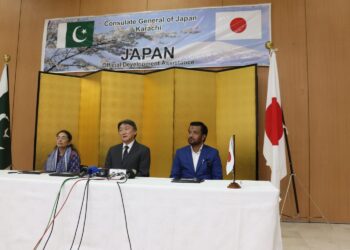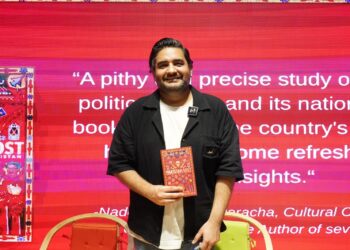Staff Reporter
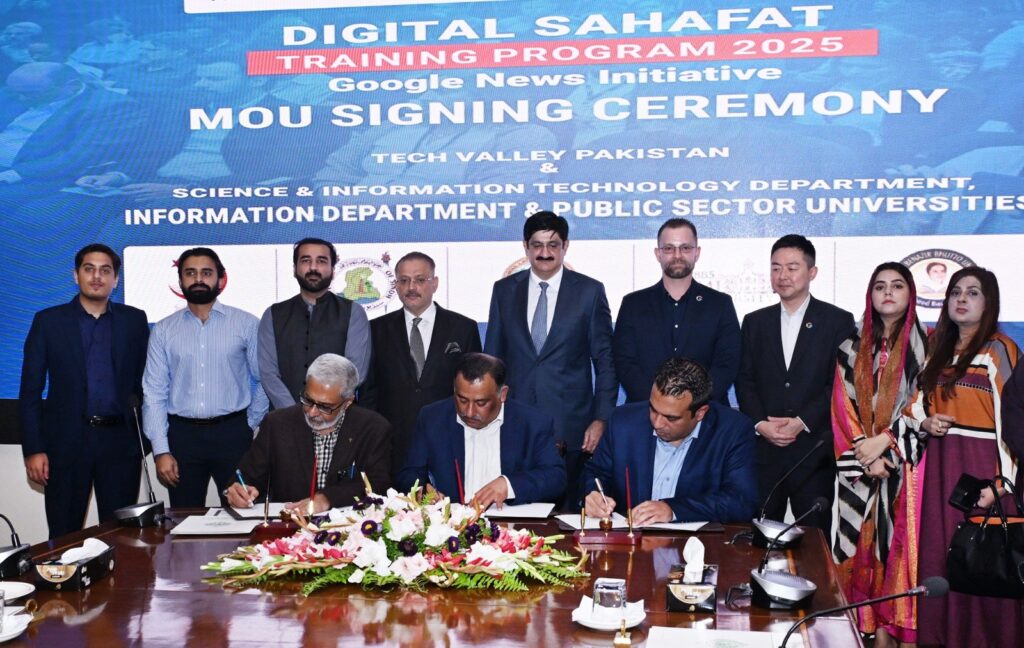
Karachi: Sindh Chief Minister Syed Murad Ali Shah on Tuesday launched the People’s Information Technology Program (PITP-II) and the Google Digital Sahafat Scholarships Programme, reaffirming the provincial government’s commitment to youth empowerment, digital innovation, and credible journalism.
Ceremony Marks Milestone in Digital Growth
The MoU and agreement signing ceremony, held at CM House, was attended by Senior Minister for Information Sharjeel Inam Memon, Chairman HEC Sindh Prof Tariq Rafi, Secretary IT Noor Samo, Vice Chancellors of NED, Mehran, Sukkur IBA, and Karachi University, Google Asia head Paul Hutchings, Tech Valley CEO Umer Farooq, KUJ President Tahir Hassan, and other dignitaries.
PITP-I Success and PITP-II Expansion
Highlighting the success of PITP-I, Murad Ali Shah said that 13,565 students received world-class IT training, surpassing targets, with over 4,300 now employed. “The programme was not only about skills but also about inclusivity, with strong participation from women and rural Sindh students,” he added. Top performers also received 300 Google Chromebooks.
Building on that momentum, the CM announced PITP-II with a Rs1.4 billion allocation, aimed at training 35,000 students in 12 high-demand technologies. Training will be delivered through NED University Karachi, Mehran University Jamshoro, and Sukkur IBA University. To reward merit, 1,750 Chromebooks will be awarded to top trainees. The programme has also broadened eligibility to include students from Matric, Intermediate, and Graduation levels, with an age cap extended to 28 years.
“PITP-II is not just training; it is a transformative leap that will cement Sindh’s leadership in inclusive, future-ready growth,” Shah remarked.
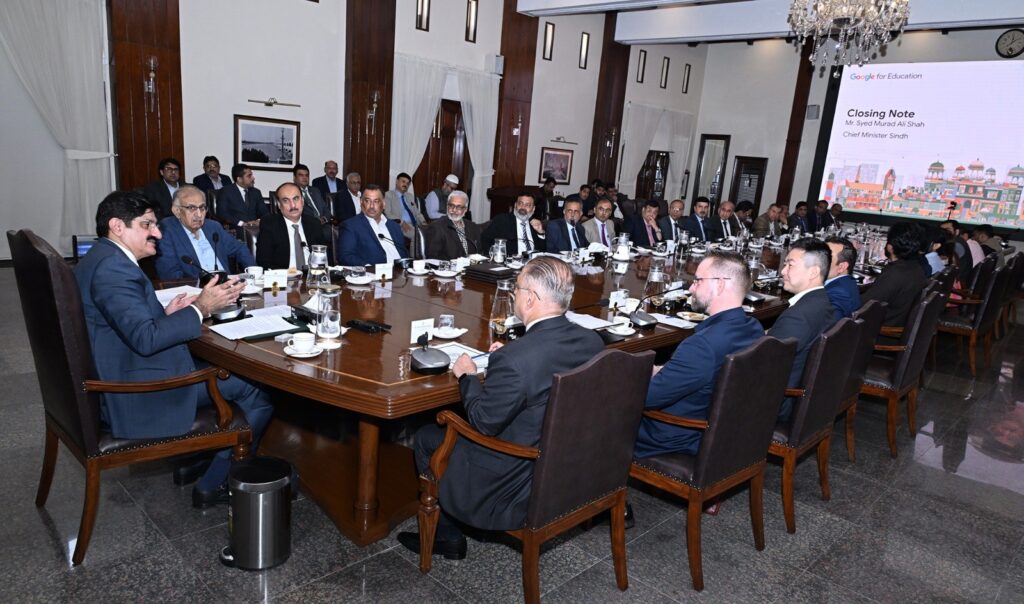
Google Digital Sahafat 2.0 for Journalists and Media Students
Alongside PITP-II, the CM launched Digital Sahafat 2.0, under the Google News Initiative in collaboration with Tech Valley and the Sindh Government. In its first phase, more than 500 faculty members and media students were trained in digital reporting, fact-checking, verification, and AI-driven journalism.
The new phase introduces 1,000 scholarships, equally divided among working journalists, government spokespersons, and public university media students. Shah emphasized, “This is not just about technology; it is about truth, accountability, and democracy. By equipping our journalists with digital tools, we strengthen transparency and public trust.”
Cabinet Approval and Partnerships
The Sindh Cabinet had earlier approved PITP-II under a special provision of the SPPRA Act, 2009, enabling direct contracting with the three universities. The Rs1.4 billion budget was cleared for fiscal year 2025-26.
Murad Ali Shah thanked Google officials Paul Hutchings and Tim Paolini, Tech Valley’s Umer Farooq, Vice Chancellors of partner universities, and provincial secretaries for supporting these initiatives. “With PITP-II and Digital Sahafat, Sindh is setting a new benchmark in digital innovation and journalism, preparing our youth for a knowledge-driven future,” he concluded.
Supporting Voices
Senior Minister Sharjeel Inam Memon said the scholarships will help train news professionals and reduce the spread of fake news. Google’s Paul Hutchings, Tech Valley CEO Umer Farooq, and the Vice Chancellors of NED, Mehran, and IBA Sukkur also addressed the ceremony. Secretary Information Noor Samo gave a detailed briefing, followed by the signing of MoUs in the presence of CM Shah and senior officials.


